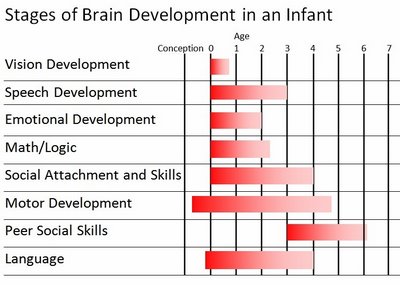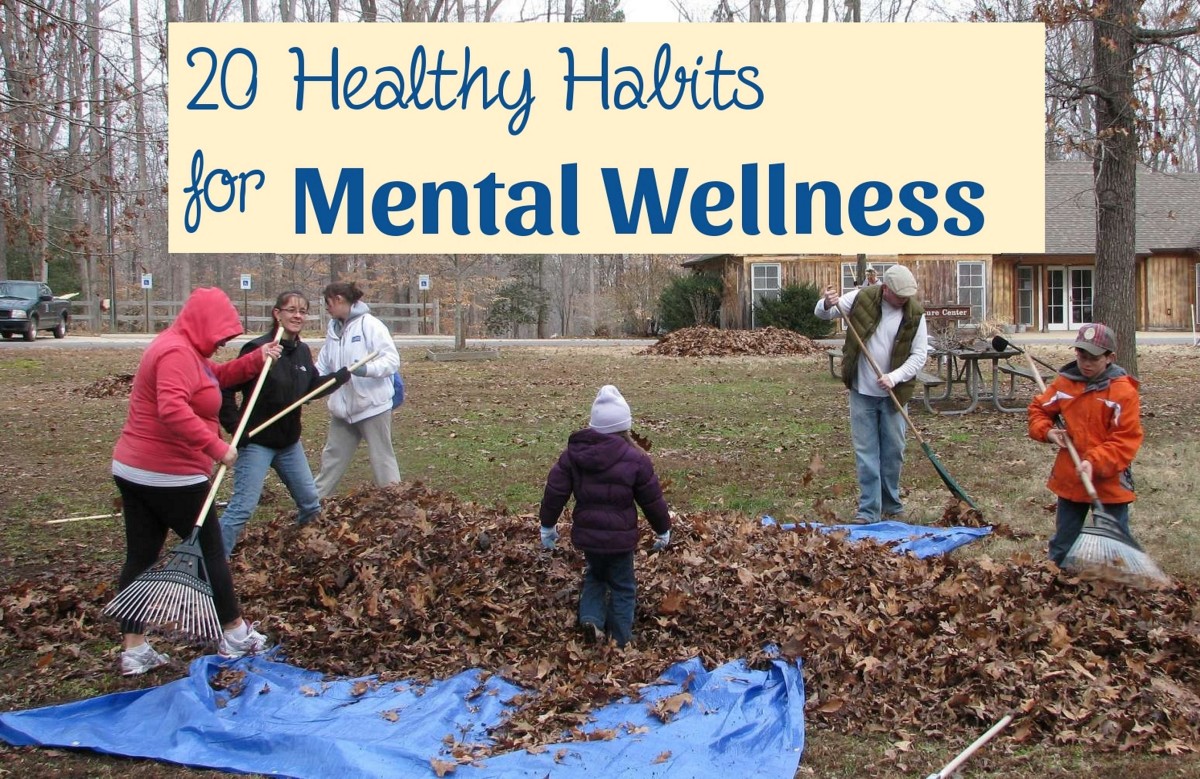Healthy relationships between infants and caregivers
Building relationships with infants in child care is a natural and very important process. While caring for infants can be a very rewarding opportunity, it can be just as difficult as well. Recent studies on the brain suggests that nurturing, supportive, and trusting interactions between infants/toddlers and their caregivers supply the foundation that infants experience their worlds. Relationships are critical in the development of a child’s brain and future relationships. Infants are fully dependent upon their caregivers from whom they naturally seek out security and protection. Babies are like sponges throughout the first three years of life, they are experiencing and discovering at a very fast rate and everything they take in is having a major effect on who they will become. The caregiver plays a significant role in the development during this time. She offers the comfort and closeness that provides the baby the support and nurturing needed in order to process future experiences.
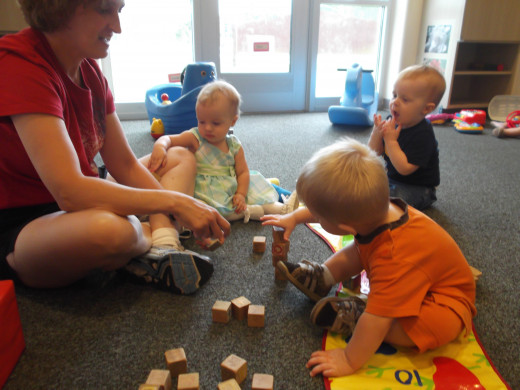
By meeting the needs of an infant a bond is created along with a necessary level of trust between the infant and caregiver. An infant’s trust of the caregiver is the foundation for effectively growing and reaching important milestones. With regular positive connections the infant will develop trust which plays a major role in future beneficial relationships as the child grows older. With regular positive connections a child will begin to develop more confidence not only in himself, but in the world around him.
A healthy and positive relationship is crucial for the healthy development of an infant. According to the National Infant and Toddler Child Care Initiative, “Positive relationships between caregivers and infants help build healthy brains.” The assumption is that positive relationships accomplish more than just encourage development; they in fact are the building blocks for the brain. While this procedure continues throughout life, it is most essential throughout infancy because it influences how the brain evolves. Infants connect to the primary caregiver most frequently due to the steadiness of the relationship. This may be true of the parent or potentially the caregiver in child care environments.
Considering these types of relationships are the focus of early childhood development, it is extremely important that the primary caregivers are receptive to the child’s physical and emotional needs, provide continuous nurturing care, and are emotionally committed in the child’s well-being. Future beneficial relationships could be determined by this phase of development. Positive interaction between infants and caregivers is needed for successful development. When a baby is encouraged to explore and discover their surroundings, the child will become more independent. This independence carries over to the next phase of development and continues throughout childhood.
It is necessary a baby's responses are met with positive reactions. “Virtually all infants develop close emotional bonds, or attachments, to those who regularly care for them in the early years of life.” (National Research Council, 2000, p. 230). For example, if the baby smiles or coos, and the caregiver often frowns rather than offering a reciprocal smile or recognition, the baby may potentially stop looking to the caregiver for reciprocation.
There are many different relationships that are essential to the development of a child. Some of these relationships include the physical and emotional care of a child. An infant cries, a parent feeds her; Day after day, night after night, mothers and fathers supply food, wash, dress, and hold their babies. Out of these relationships, emotions and needs increase. When a baby feels uncomfortable or hungry, the parent will respond which results in the baby feeling content. Eventually, the baby starts to anticipate that her parent will care for her when she cries. Over time, parents react towards and even predict their baby's needs. These components develop the foundation for developing relationships, a blend of behaviors, interactions, emotions, and needs that are exclusive to a particular parent and a particular child
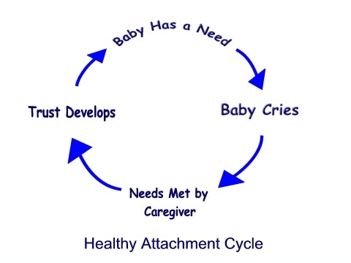
Another relationship that is crucial to an infant’s development is the continuation or steadiness in a child’s life. Having a consistent caregiver and steady routine offers children the emotional stability they need for a lifetime. When a caregiver stick to a daily routine such as serving meals at the same time each day, or having nap time at the same time each day will give the child a sense of security and helps the child to feel safe.
Emotional engagement is also a key element for a growing child. When there is constant positive emotional engagement, children discover that someone else recognizes their emotions and feelings. This particular closeness between a caregiver and a child is the basis of healthy emotional development in infants and toddlers. When a child claps their hands for the first time, or puts a block into the correct space, the caregiver promotes further milestones by the way in which they respond. By responding with a smile or a hug, this is positive reinforcement for the child. It will encourage future accomplishments as the child seeks the same positive response from the caregiver.
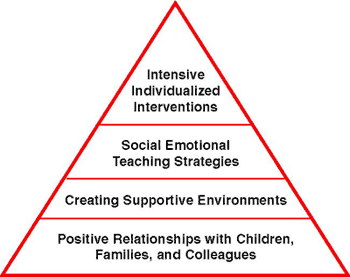
Nurturing relationships are an important to infant/toddler emotional health, learning, and development. Babies and young children who feel loved and secure are happy, healthy, and self-confident. Many young children these days are cared for by non-parental caregivers either through child care, relative care, or foster care. The relationships in which these caregivers build with infants and toddlers are vital to children’s learning, self-confidence, and overall wellbeing.
The relationships that are established with infants supply the fundamentals for brain growth as well as for children’s growth and ability to learn. When there is stable and respectful interact action with babies, relationships help create foundations that will help children for life.
Developing respectful, continual, balanced, and nurturing relationships with children and their families may not always be an easy task – however it is an essential one.
